Now Hiring: Urban Forestry Internship
/in Uncategorized/by Lyssa Schmidt
Thanks for your interest in California Greenworks’s Urban Forestry Internship. With your help,
we will be able to correct environmental injustices and help mitigate climate change to the
most vulnerable communities in Los Angeles.
Here’s a list of responsibilities that are associated with managing and maintaining urban forest
areas:
Tree Planting:
- Select appropriate tree species for planting considering climate, soil conditions, and urban
environment. - Determine suitable locations for planting trees based on factors such as available space,
sunlight exposure, and proximity to infrastructure.
Tree Maintenance
- Help manage the tree maintenance with CGW partners
- Help monitor trees for signs of pests, diseases, or damage and taking appropriate action to
address issues.
Tree Inventory and Mapping
- Conducting inventories of existing trees in CGW tree planting sites and update as needed
- Utilizing Geographic Information Systems (GIS) technology to map tree locations and track
changes over time. - Help monitor various metrics for CGW trees to measure environmental and social impacts
Community Engagement and Education
- Organizing tree planting events and volunteer opportunities to involve community members
in urban forestry initiatives. - Providing educational workshops and materials to raise awareness about the benefits of
trees and proper tree care practices.
Urban Heat Island Mitigation
- Strategically planting trees to provide shade and reduce surface temperatures in urban
areas. - Collaborating with city planners and developers to incorporate green infrastructure into
urban design projects.
Environmental Monitoring
- Monitoring air quality, soil health, and biodiversity in urban forest areas to assess the
ecosystem services provided by trees. - Collecting data on carbon sequestration and greenhouse gas emissions to quantify the
environmental benefits of urban forestry.
Policy Development and Advocacy
- Developing and advocating for policies and regulations that support urban forestry
initiatives, such as tree protection ordinances and urban greening strategies. - Collaborating with government agencies, non-profit organizations, and other stakeholders to
promote urban forestry as a priority in urban planning and development.
Research and Innovation
- Conducting research on urban forestry best practices, including tree species selection,
planting techniques, and management strategies. - Collaborating with academic institutions and research organizations to advance scientific
knowledge and innovation in the field of urban forestry.
Long-term Planning and Sustainability
l
- Developing long-term management plans for urban forest areas to ensure their
sustainability and resilience in the face of environmental challenges. - Securing funding and resources to support ongoing maintenance and expansion of urban
forestry programs and initiatives.
These responsibilities may vary depending on the specific goals and priorities of urban forestry
programs, as well as the resources available to implement them.
Interested in applying? Complete our application form.
Climate Justice, 2024: Harnessing Technology for Climate Justice: APathway to Equity and Sustainability
/in Uncategorized/by AdminClimate change is one of the most pressing challenges of our time, exacerbating existing inequalities and disproportionately affecting vulnerable communities around the world. In thefight for climate justice, technology emerges as a powerful tool to address environmental disparities and promote equity while advancing sustainability goals. Empowering Communities: Technology has the potential to empower communities to […]
We LOVE Our Volunteers!
/in Uncategorized/by AdminApril is Volunteer Appreciation Month. During the month of April (and all year round) we celebrate and honor the invaluable contributions of volunteers to our communities. A volunteer is defined as a person who voluntarily undertakes or expresses a willingness to undertake a service (Merriam-Webster Dictionary).
At California Greenworks, our volunteers are the foundation that allows us to carry out our programming to improve the environment and quality of life in urban communities around Los Angeles.
Volunteers Make Our World Greener
We hosted our Community Cleanup event on February 10 at the beautiful Westside Neighborhood Park. Thanks to all of our volunteers, we were able to clean up more than 100 pounds of litter!
Four of the volunteers at the event were the Artiga Family. Their entire family showed up and worked together to clean up waste in our community. After the event, we followed up to ask them about their experience. Here’s what they had to say:
Q: How did you hear about California Greenworks Community Cleanup Event?
A: We first heard of the organization on a web search when our family (2 dad and two, 11 year boy/girl twins) were looking for a way to do some community service around the Martin Luther King holiday a few years ago as the pandemic was lightening up. California Greenworks was sponsoring an event in the south LA area and were eager to participate.
Q: What made you want to take part in our Community Cleanup Event?
A: We are eager to participate because we saw this as a way of helping our larger LA city community. Even though we didn’t live in that part of south LA we deeply believe in the words of MLK that, “When one struggles we all struggle” and this was a way to help our larger city and its members.
Q: What was your favorite part or highlight of the Community Cleanup Event?
A: The best part of the cleanups was knowing we were contributing to our city and doing this as a family. This tapped into my sense that “tiny steps can lead to many miles” in the sense that when we take some small actions together we can make a lot of good progress. At the end of the events, the streets and parks that we helped clean up looked so much better. I asked my kids what they liked and they said “I liked cleaning…it was fun as a family.”
Thank You!
A HUGE thank you to everyone who has donated their time and talent to support California Greenwork over the years! Thank you for supporting our goals to create; environmental justice and climate equity, sustainable, community-based restoration to eliminate urban blight and promote green space development, innovative, modern and actionable green education and curriculum, and advocacy for green job creation and economic development.
Join us on May 4!
Join us this Saturday, May 4, for our Community Cleanup event starting at 10:00 AM! We are excited to gather together for a day of community bonding and environmental stewardship.
This event is all about coming together as a neighborhood and making a positive impact on our local environment. We will be working together to clean up the park, removing litter and debris, and ensuring that our beloved park remains a clean and safe space for everyone to enjoy.
Registration link for our Community Cleanup event coming soon!
Meet Jessy Shelton, California Greenworks Project Lead
/in Uncategorized/by Admin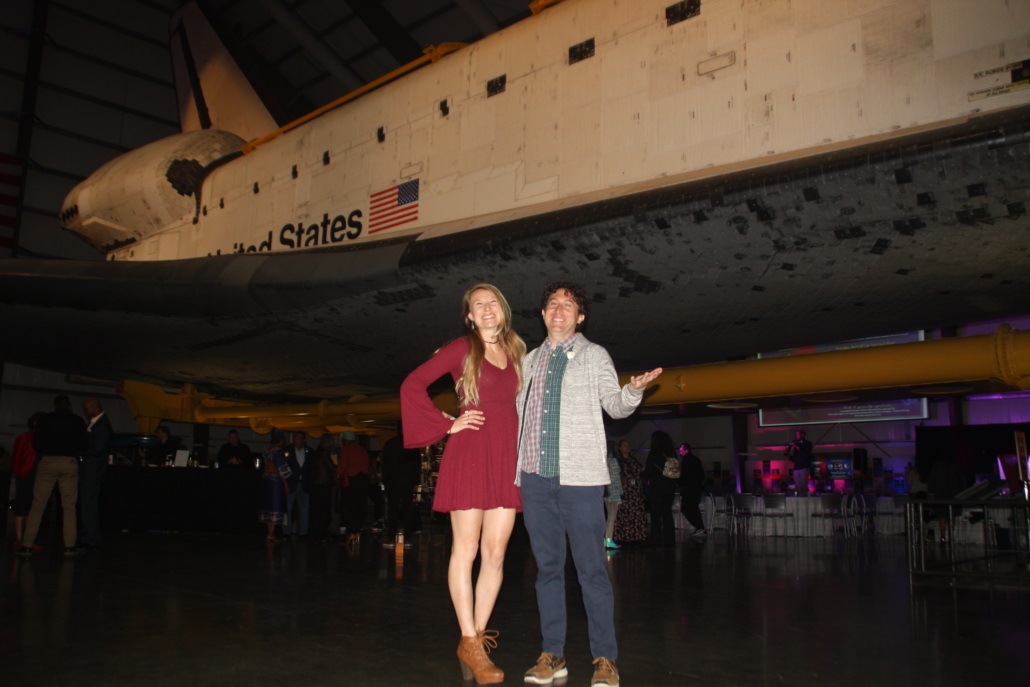
Jessy has served 10 years, both professionally and voluntarily, working with nonprofits. She holds a B.S. in Environmental Science and Resource Management with an emphasis in Marine Sciences. In her freetime, she is a SCUBA instructor and enjoys freediving, snorkeling, surfing, skateboarding, rock climbing, camping and running around with her dog.
Here’s more from Jessy about why she’s a part of California Greenworks:
I am from a small town in a valley of southern California. Compared to the beach, the valley climate is cold at night and very hot during the day, with little breeze. I grew up going to the beach as often as I could, and partially the reason behind it was the temperature change.
When it comes to environmental issues, the lack of understanding about the severity of the state of the planet is something that worries me. Globally, climate change is my biggest concern, as well as agricultural methods, commercial fishing and overall natural resource usage.
I hope to build a stronger connection to the community and get our name out there more. I hope to bring attention to other environmental issues as well. I have 10 years, both professionally and voluntarily, working for nonprofits serving the community. I think I bring a new perspective to the team and am slowly building a network of other groups in the community to expand our reach!
I am inspired most by CGW being a resource for the community. I love that we are becoming a group to inform the public, put them in front of decision makers, and create a greener space for the city.
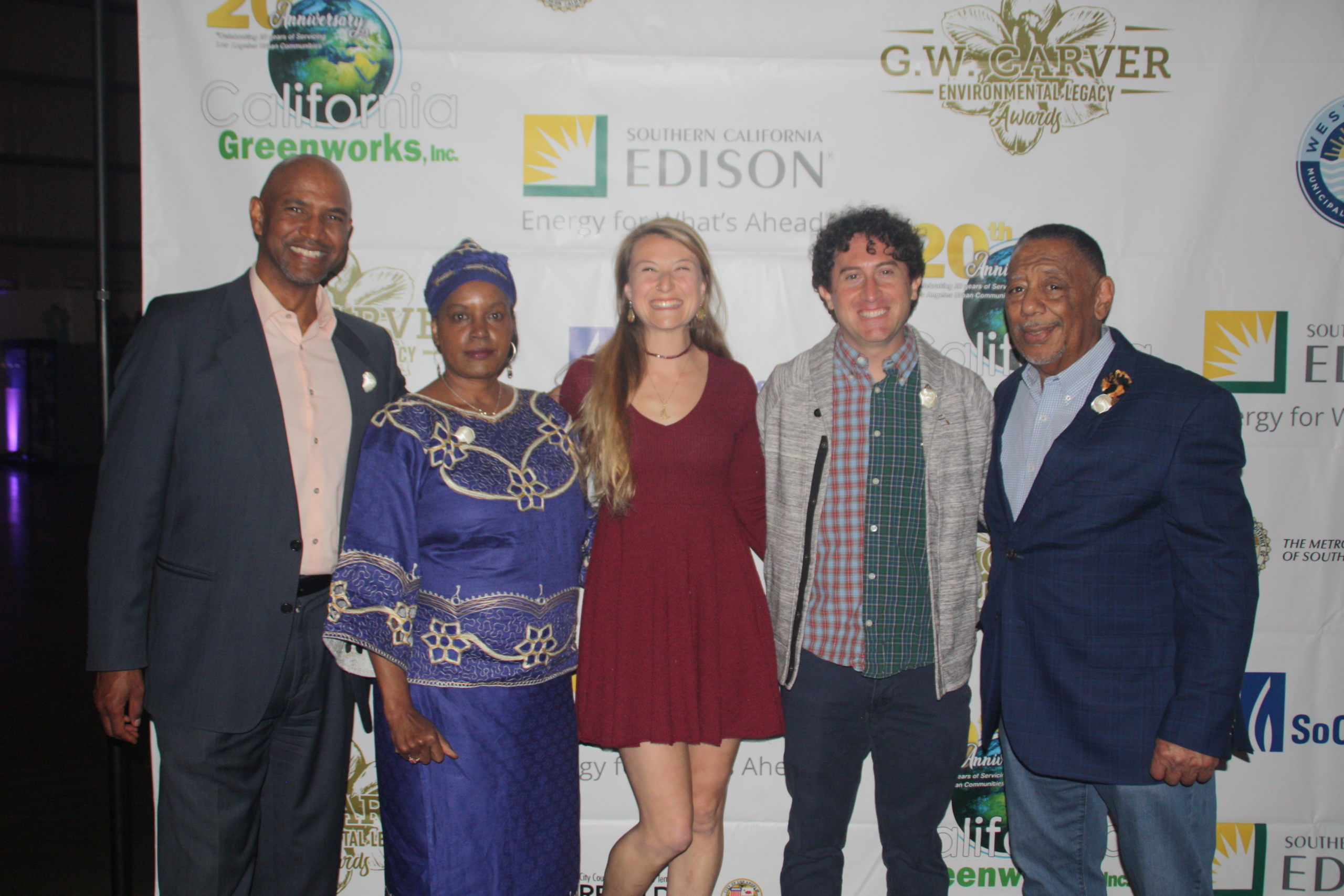
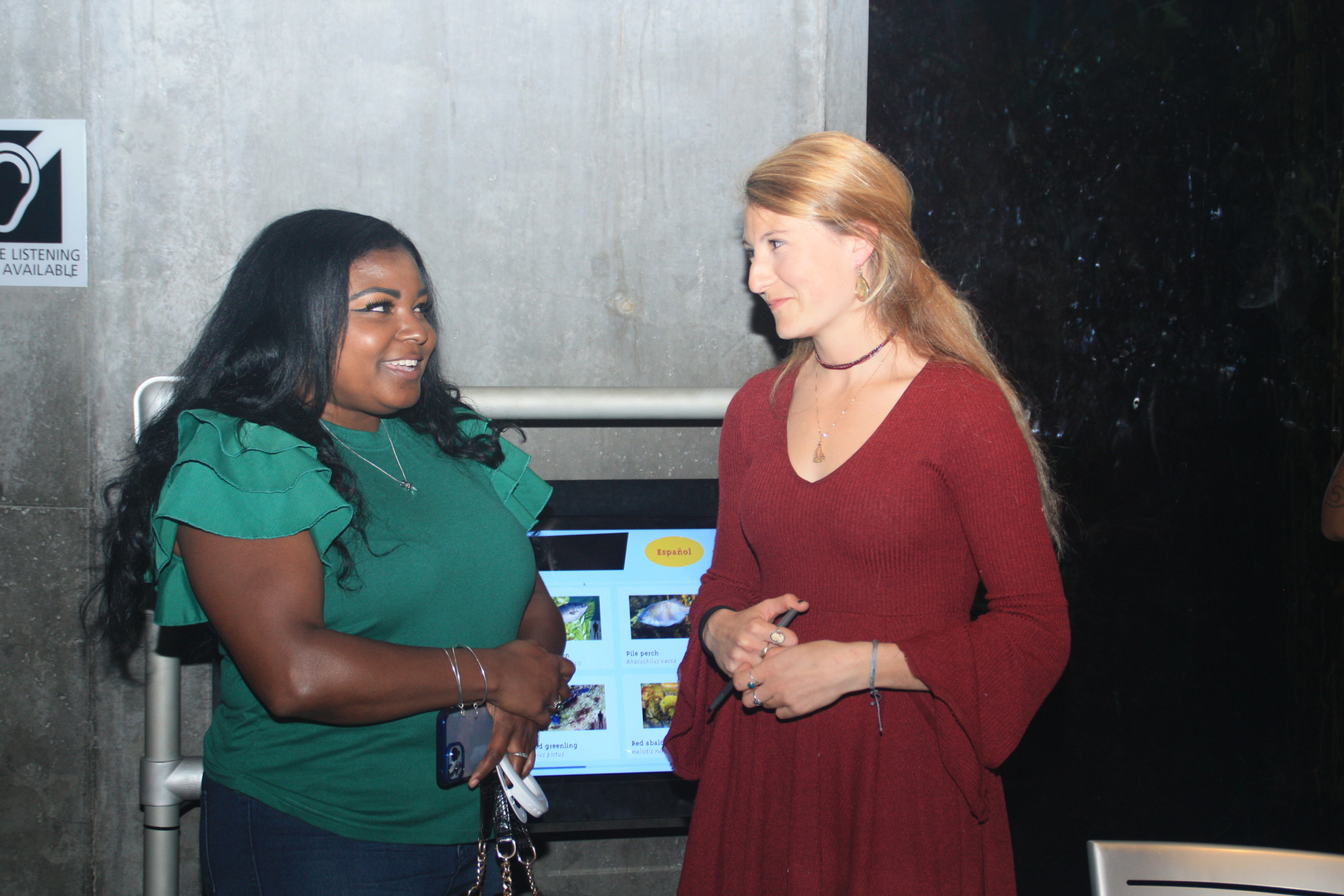
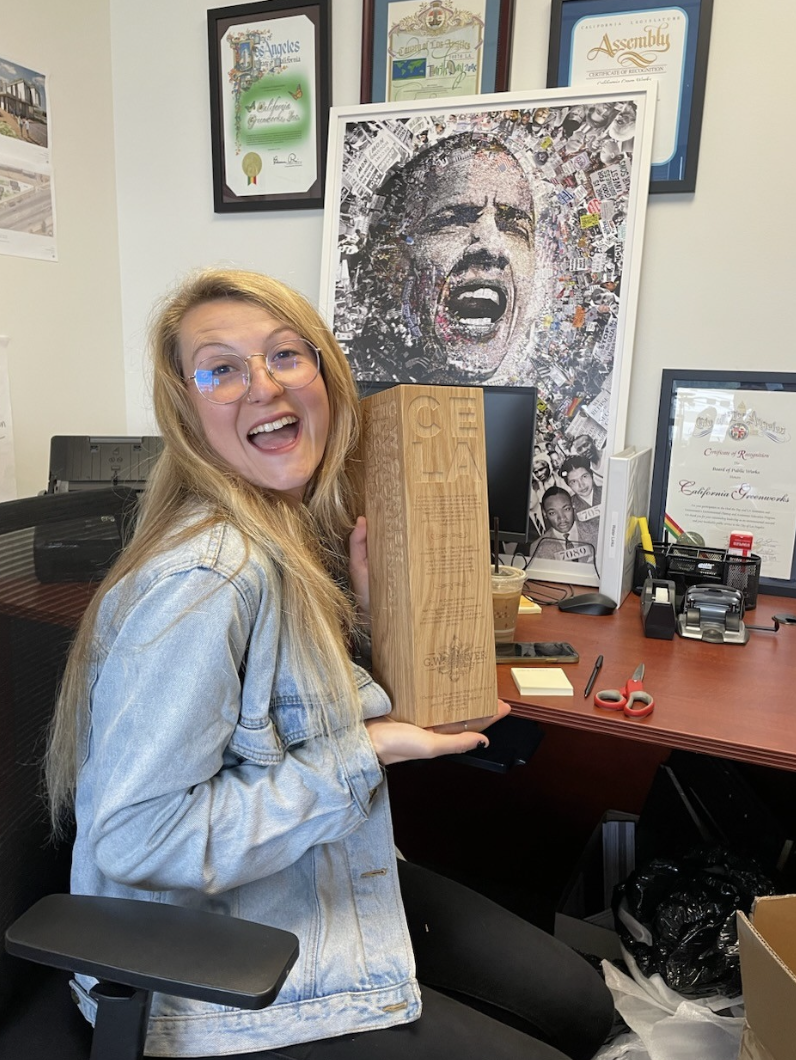
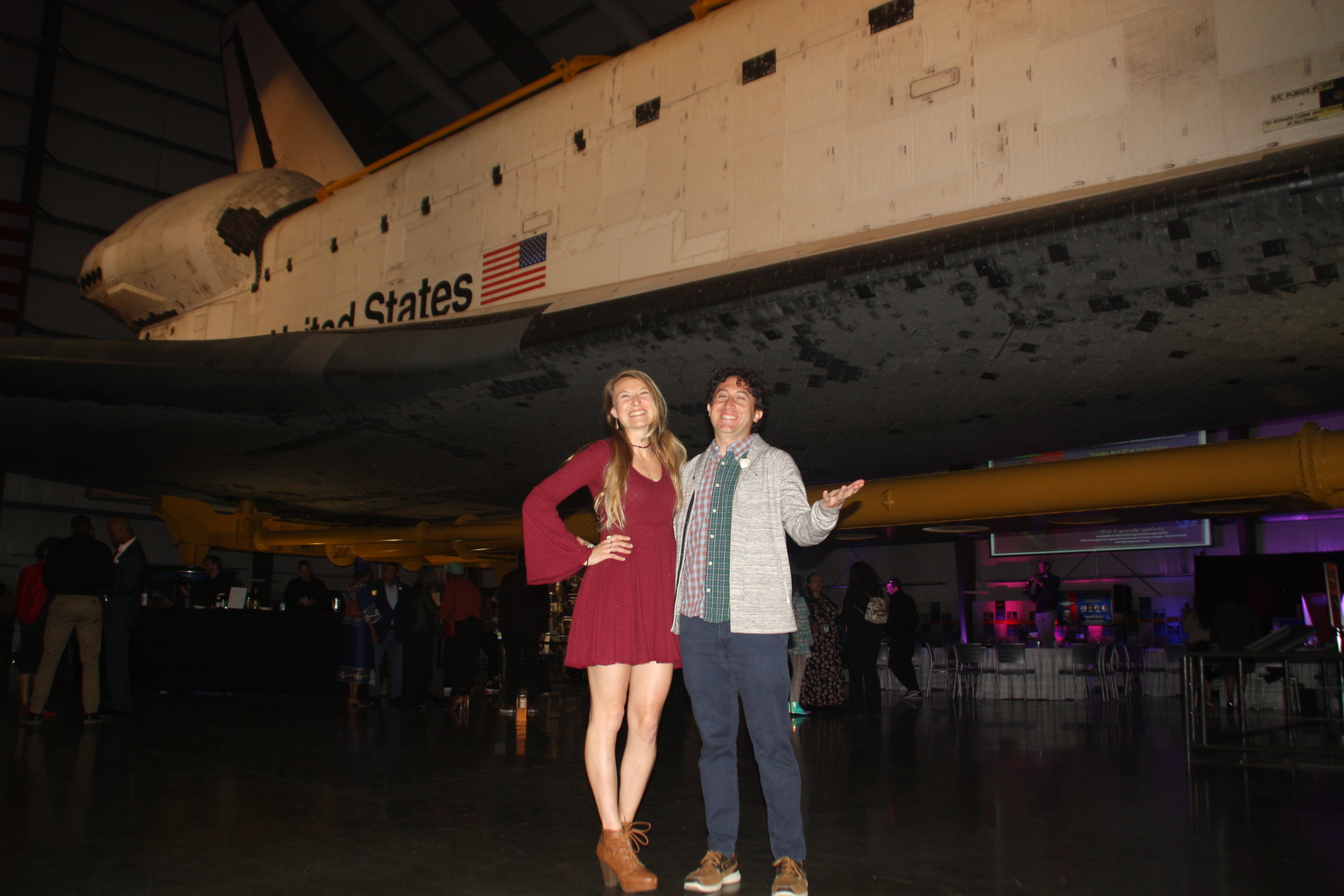
Meet Michael Berns, California Greenworks Program and Project Director
/in Uncategorized/by Admin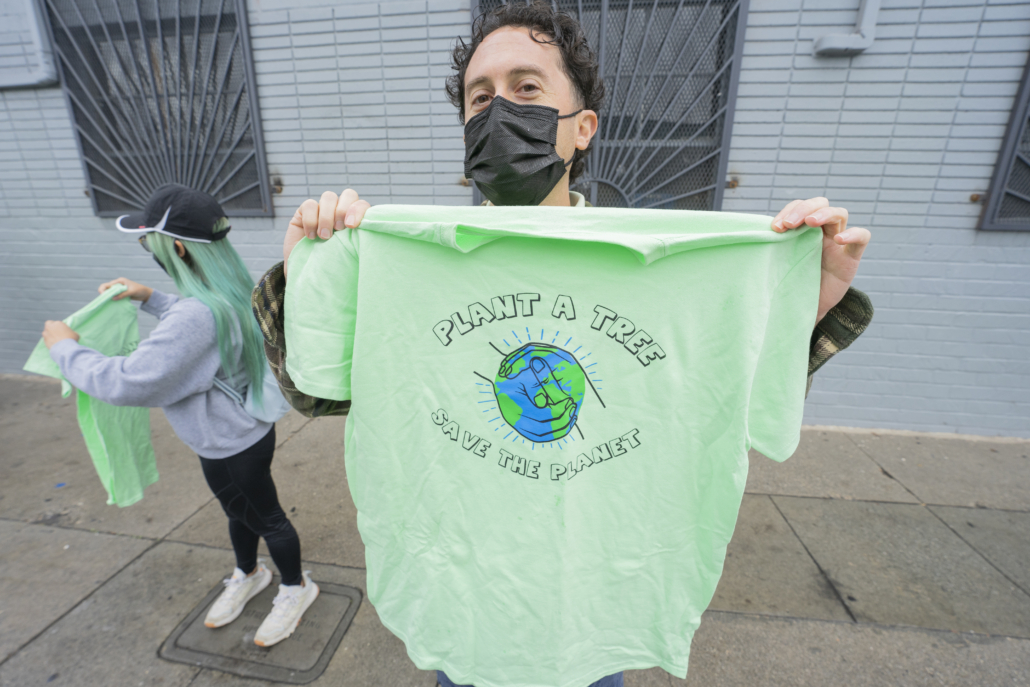
Michael has served 14 years in the nonprofit industry. He holds a PhD in Anthropology and is passionate about the environment and mental health. In his free time, he enjoys reading, traveling, surfing and making mosaics out of recycled material (michaelbernsart.com).
Here’s more from Michael about why he’s a part of California Greenworks:
I grew up in the Santa Monica mountains of Los Angeles, where I ran cross country from an early age. Oak savannas and the grassy hills were always my happy place. As I got older, I began to surf and began to notice how everything, and I mean everything, funnels into the bay of LA. After a storm, we were warned not to surf for at least 48 hours due to the increase in contaminants. This really hit home when I saw all the trash, litter, diapers and dead possums in the water.
CGW’s drive towards climate equity keeps me passionate. As a secular Jew from Los Angeles, the concept of social justice was constantly discussed in my family and community. I love that I am able to learn about the specific environmental aspects of social justice; and, I feel honored that CGW provides me with opportunities to correct the glaring injustices of the world.
I hope to create an impact at CGW by following the mantra of scalability. The world won’t be saved in one day, but that doesn’t mean we shouldn’t try. I hope to create more research and insights into the correlation between mental health and the environment. I hope to create opportunities of redressing historical environmental injustices. I hope to leave the world a better place than how I found it. I am an asset to the mission because of my training and passion towards research: I like reading and I like learning! I can also bridge seemingly disparate parts into a whole. I will continue to contribute to CGW through my passion, research skills, unique insights and perseverance.
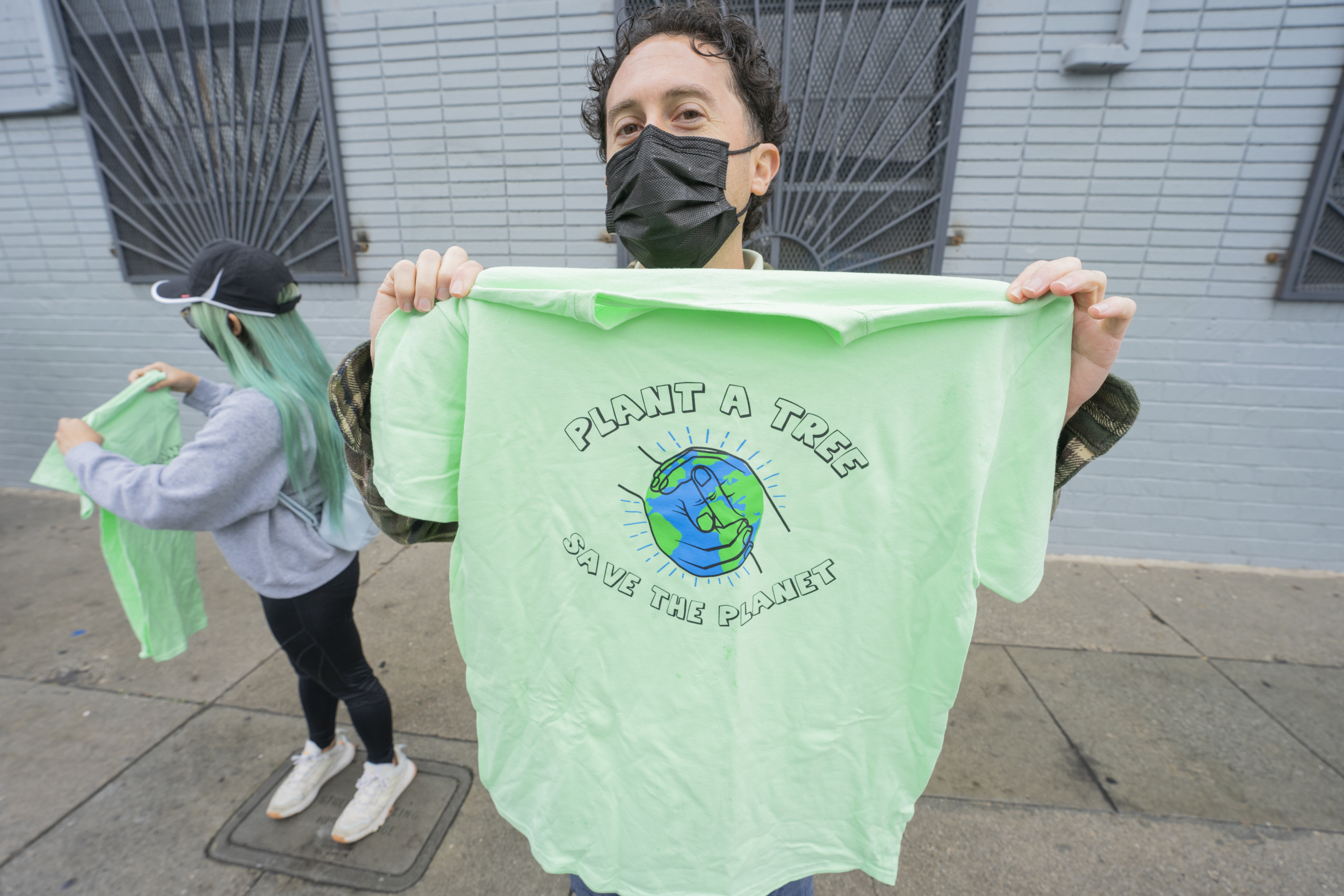
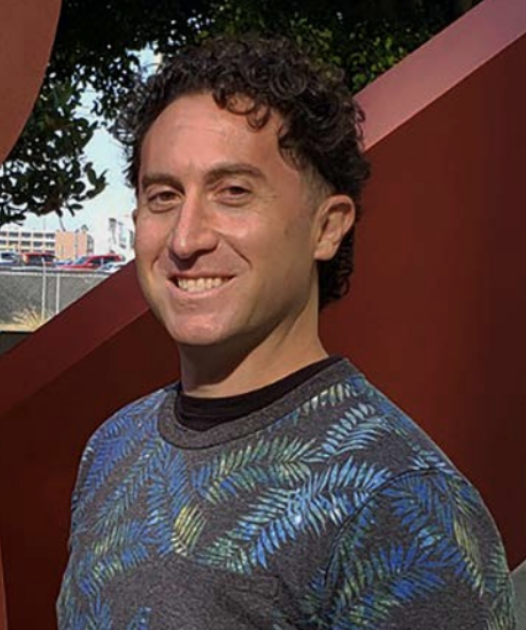
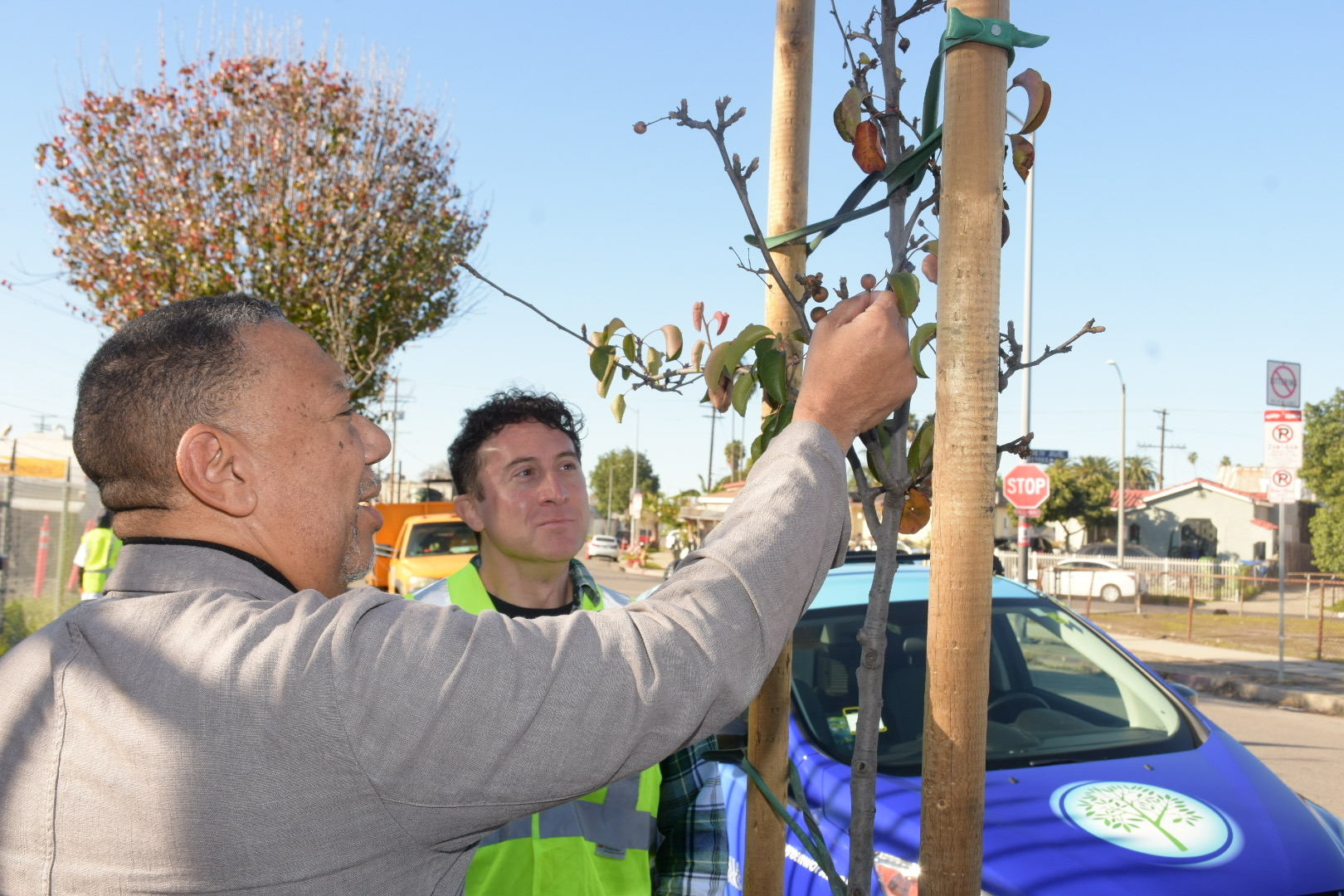
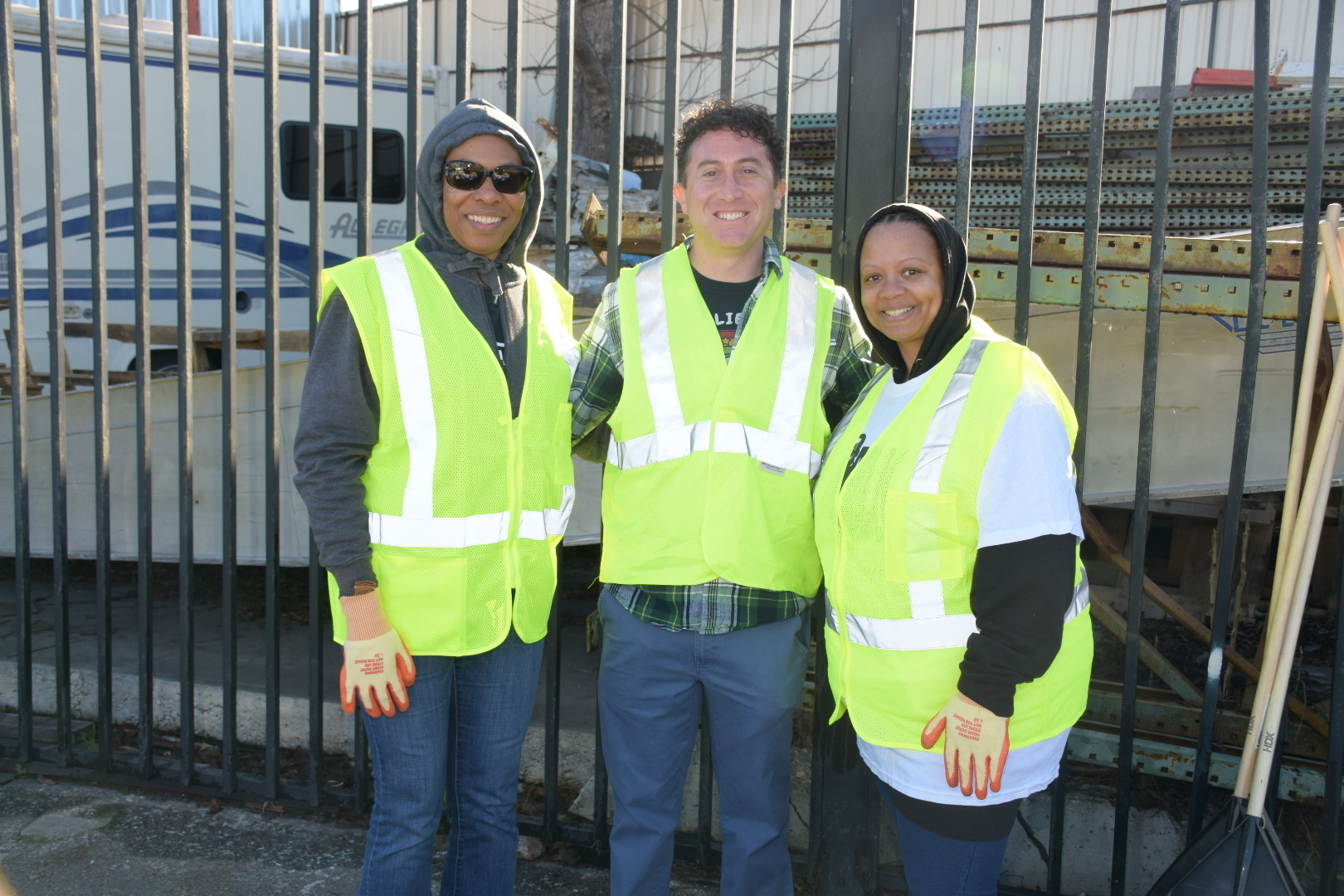
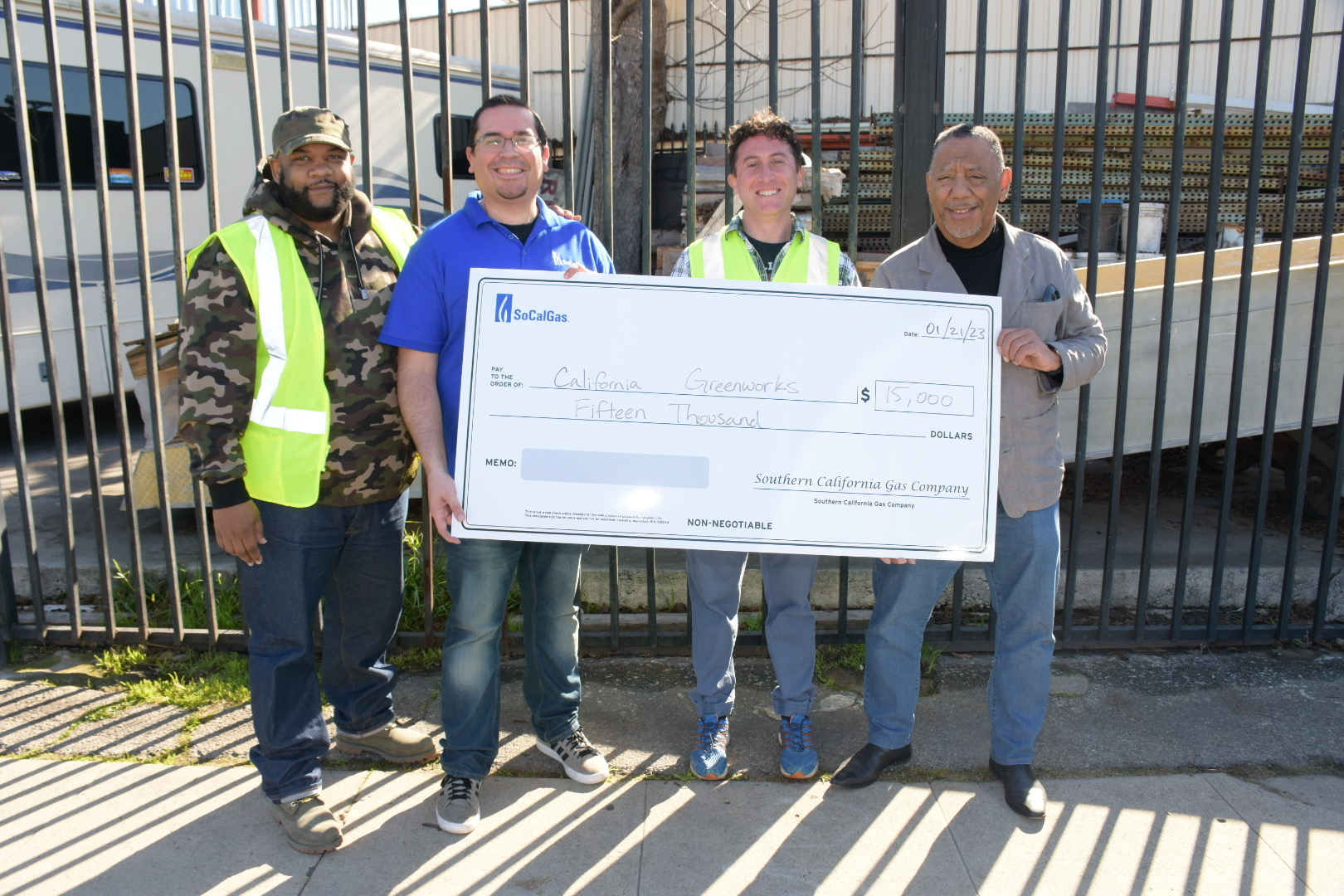

Meet Mike Meador, California Greenworks Founder & CEO
/in Uncategorized/by Admin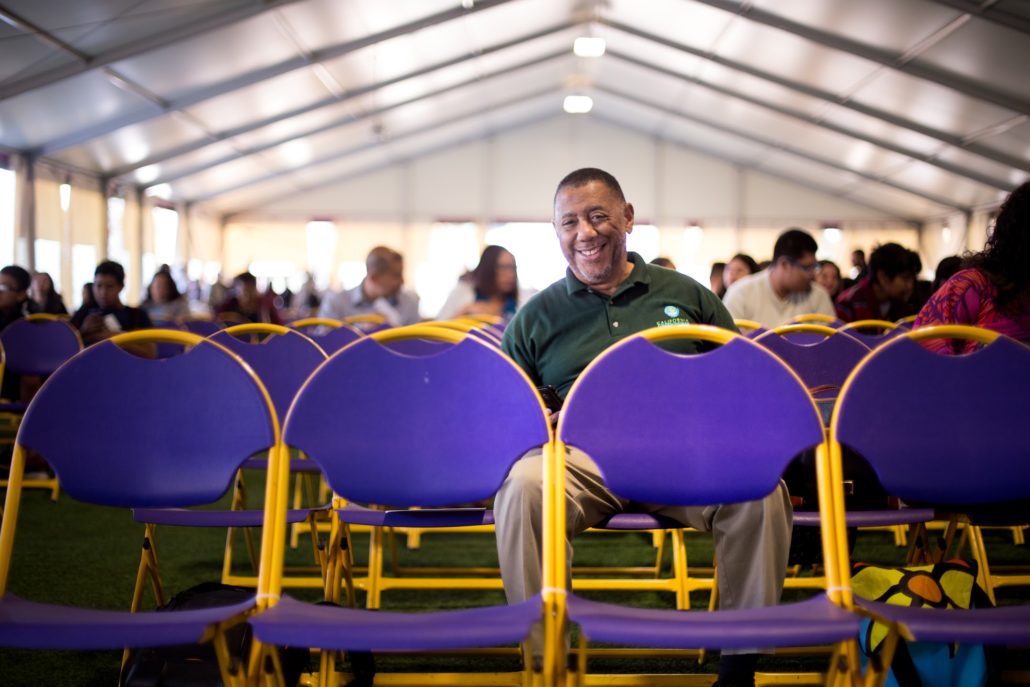
Mike has served as the leader of this environmental nonprofit for 20 years. He holds both a BA and MBA and is passionate about environmental justice, open space, and protection of our natural resources air, water and land.
Here’s more from Mike about why he started and remains committed to California Greenworks:
My family was involved in the agriculture industry in Texas, and much of my perspective comes from that experience. When I moved to Los Angeles, my eyes were quickly drawn to the abundance of urban blight: areas ridden with deteriorating or abandoned homes and other buildings, vacant lots, weeds and very little green space.
In Los Angeles, I met a girl from Kenya encouraged me to look at into the environmental space. That was back in 2000, and there weren’t very many African Americans involved in the environmental movement. At this time, we were just looking at what we could do to make things better in Los Angeles specifically. When we talk about environmental justice – the majority of low income communities are in the same areas as those industrial facilities – which harms health and wellbeing – and we started looking into projects as to how to improve this.
It was on a sailing trip with another founding member that California Greenworks was born. Noticing the excess trash in the water and all our conversations about environmental injustice in the background, it became clear something needed to be done. It should be a civil right for everyone to have clean water and clean air. And so, we started California Greenworks to create that change.
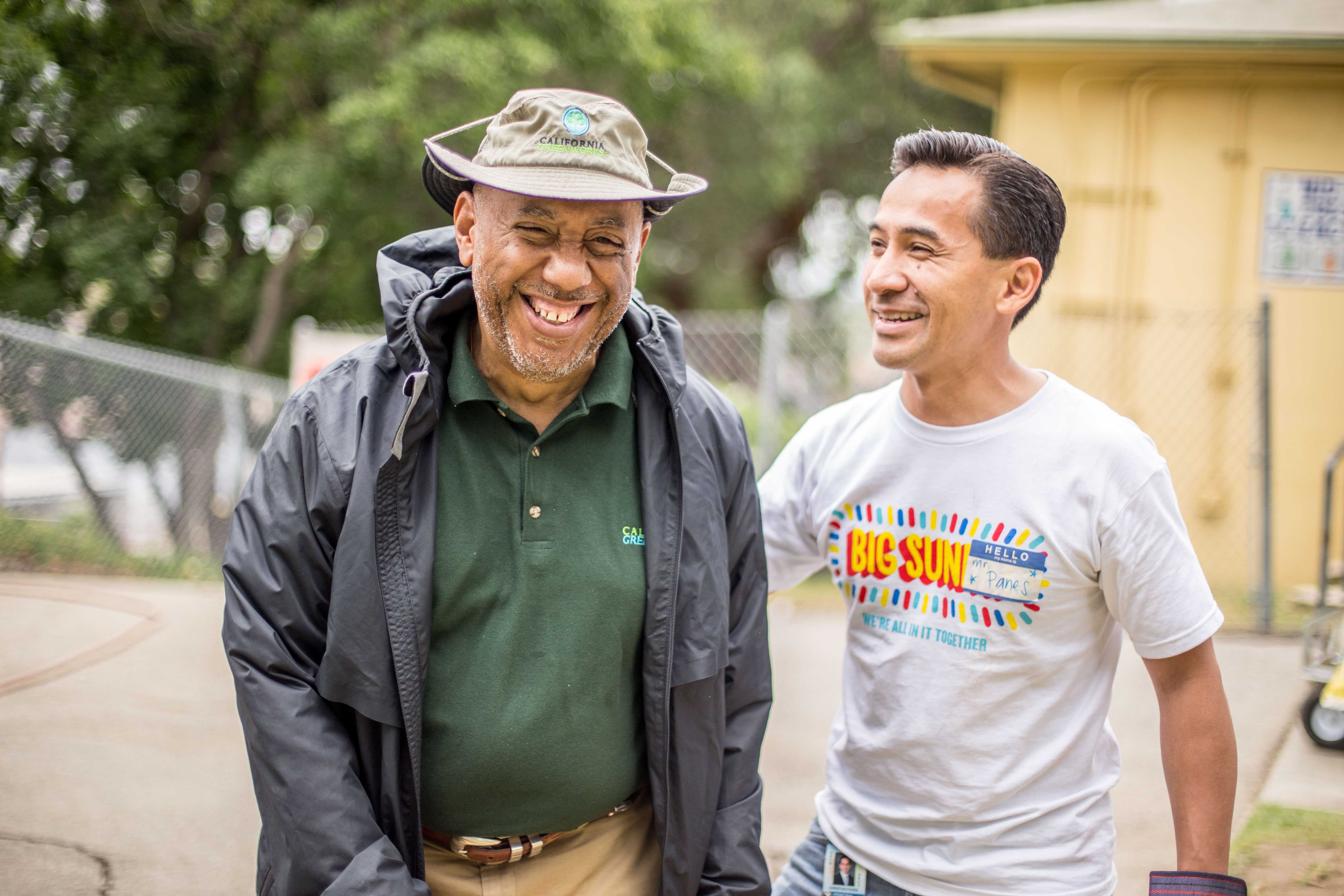
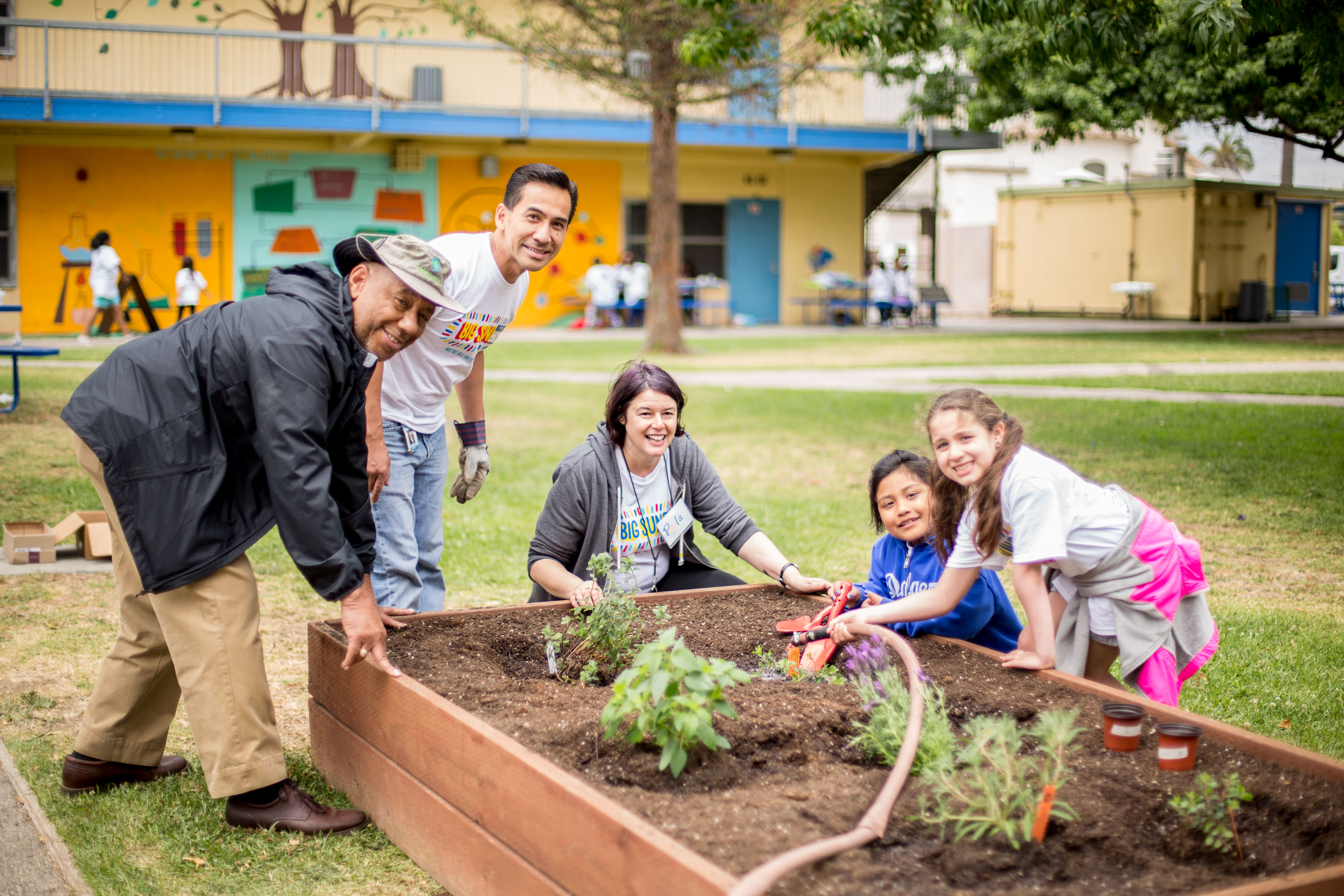
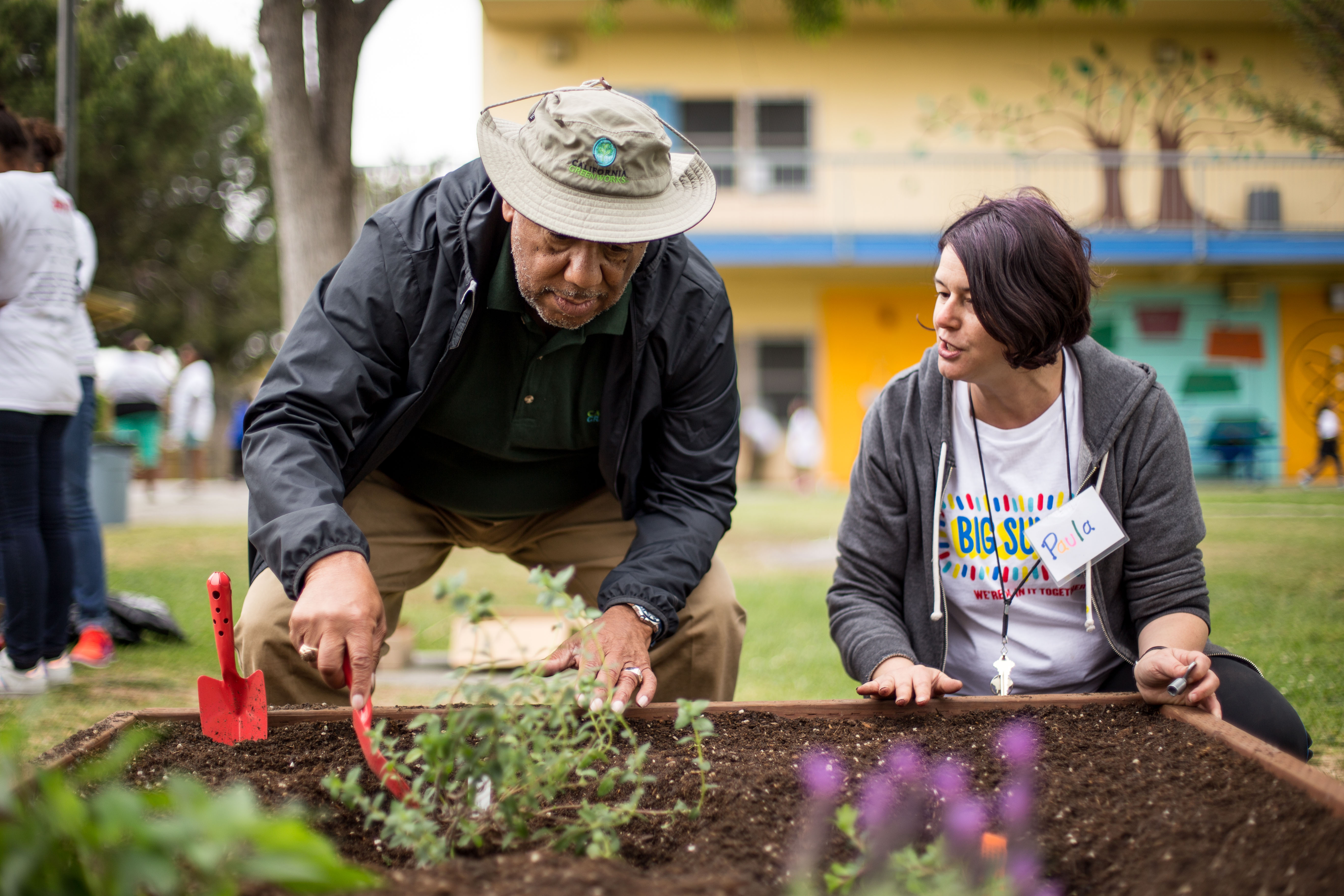

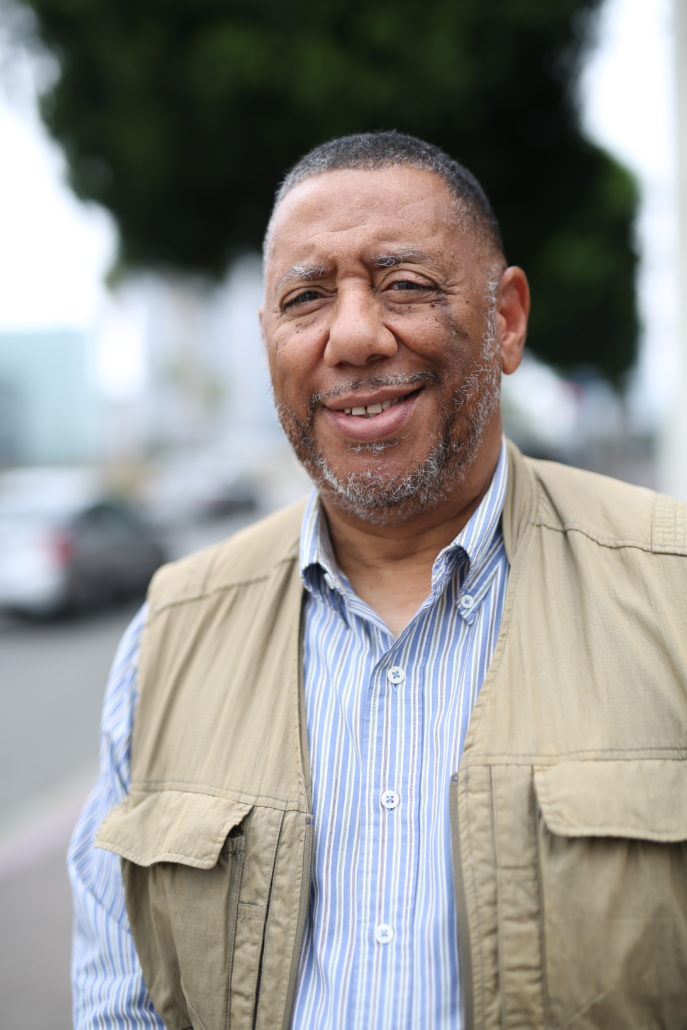
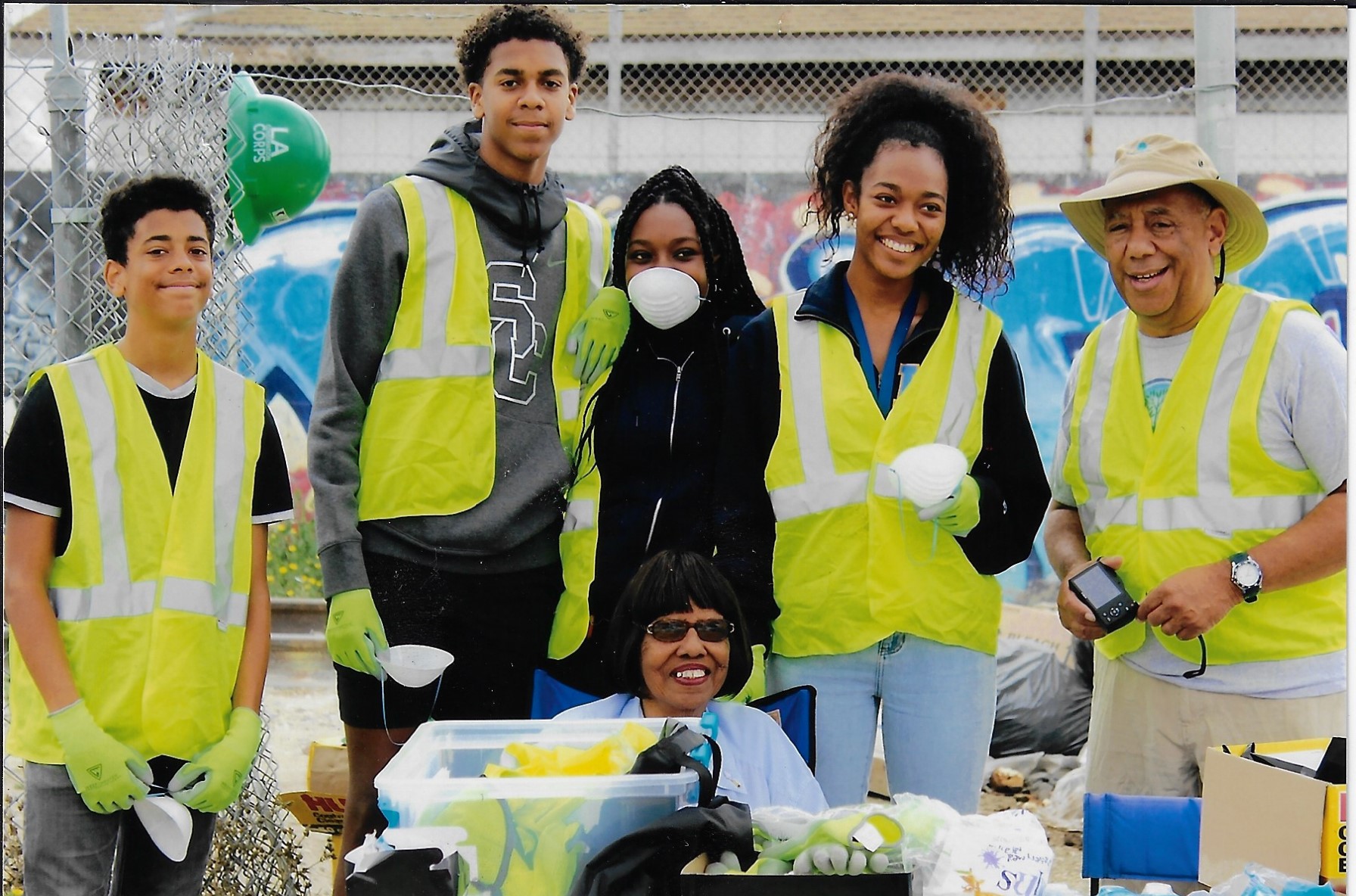
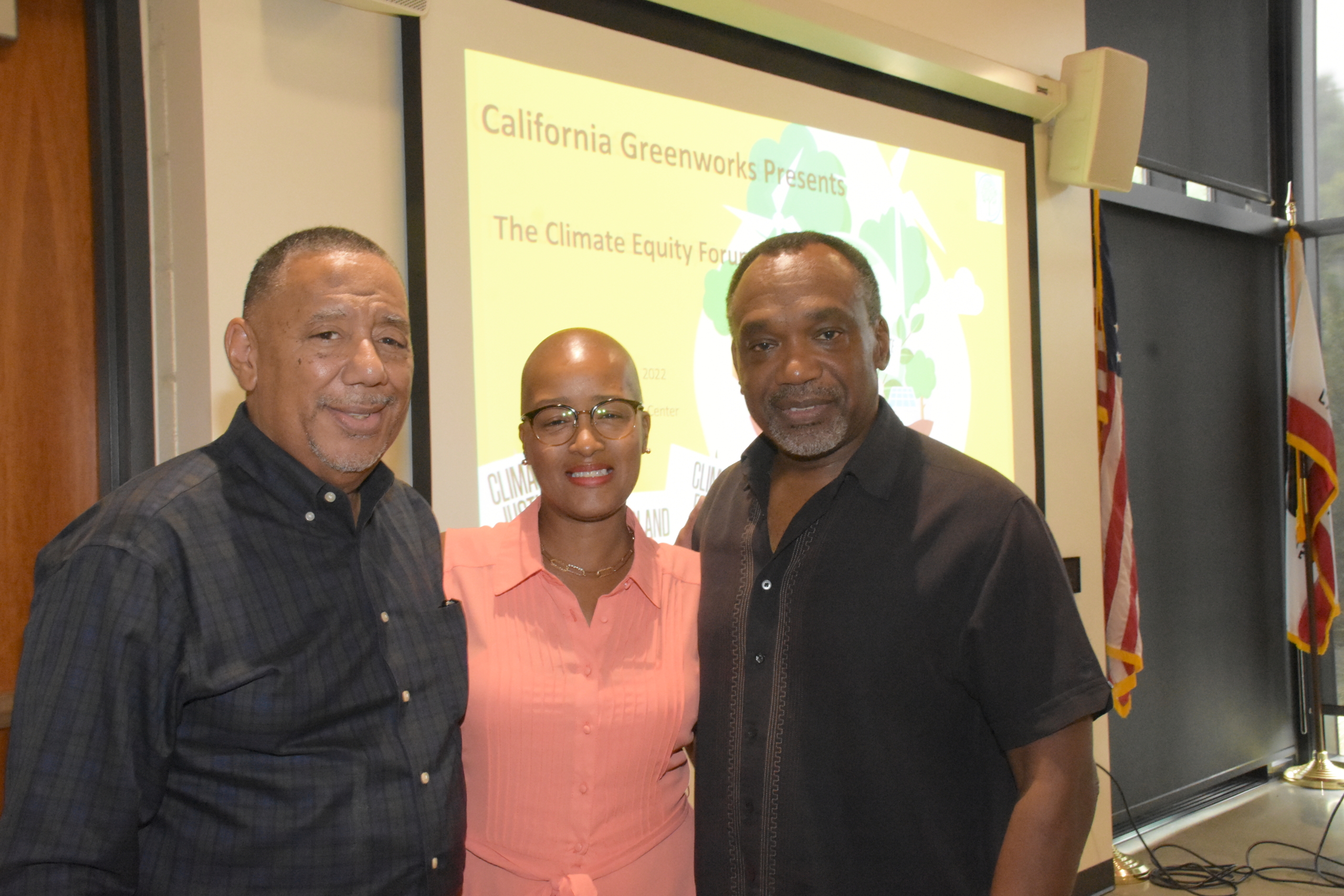
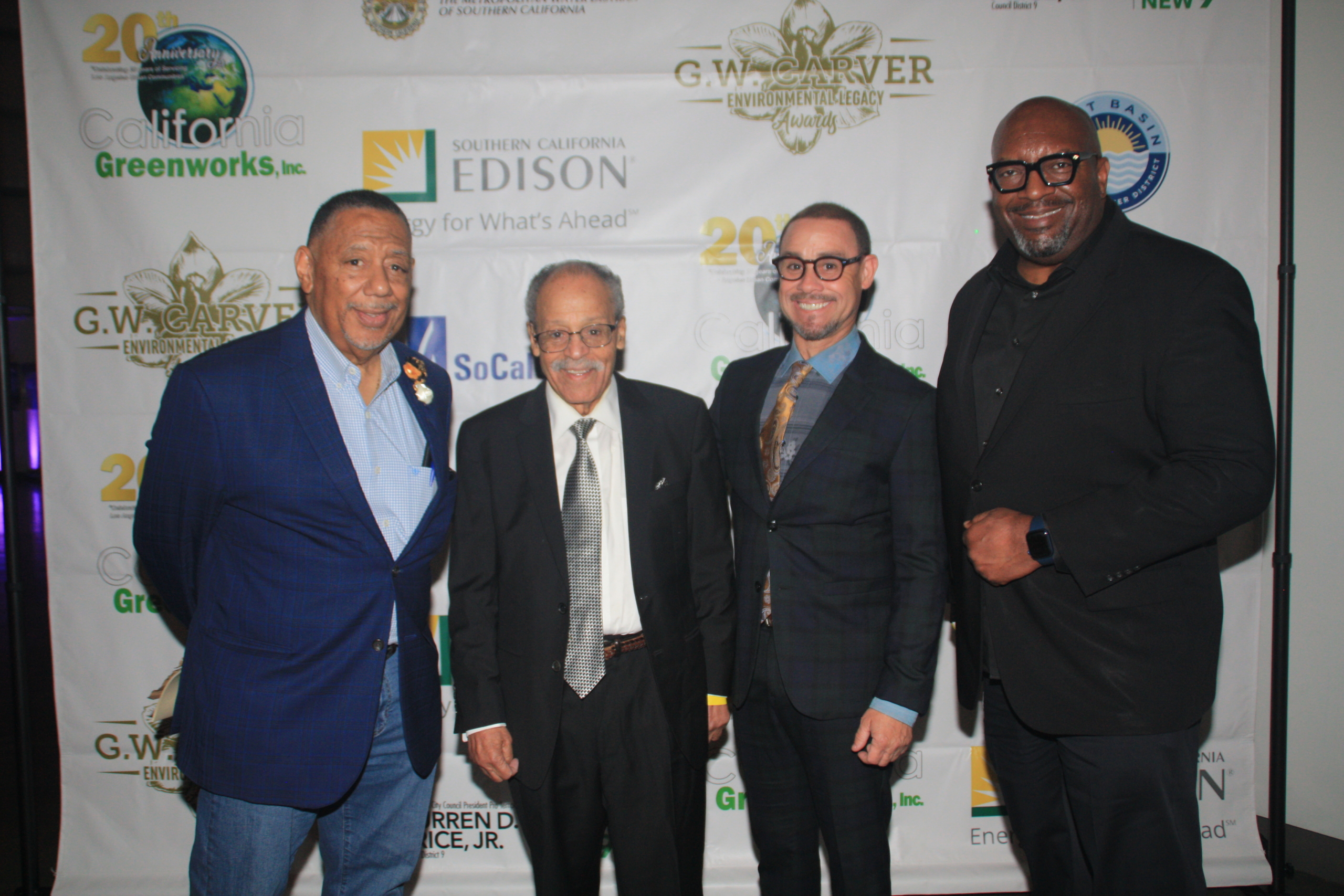
A Reflection on 20 Years of Environmental Action as We Celebrate Our Anniversary
/in Uncategorized/by Lyssa Schmidt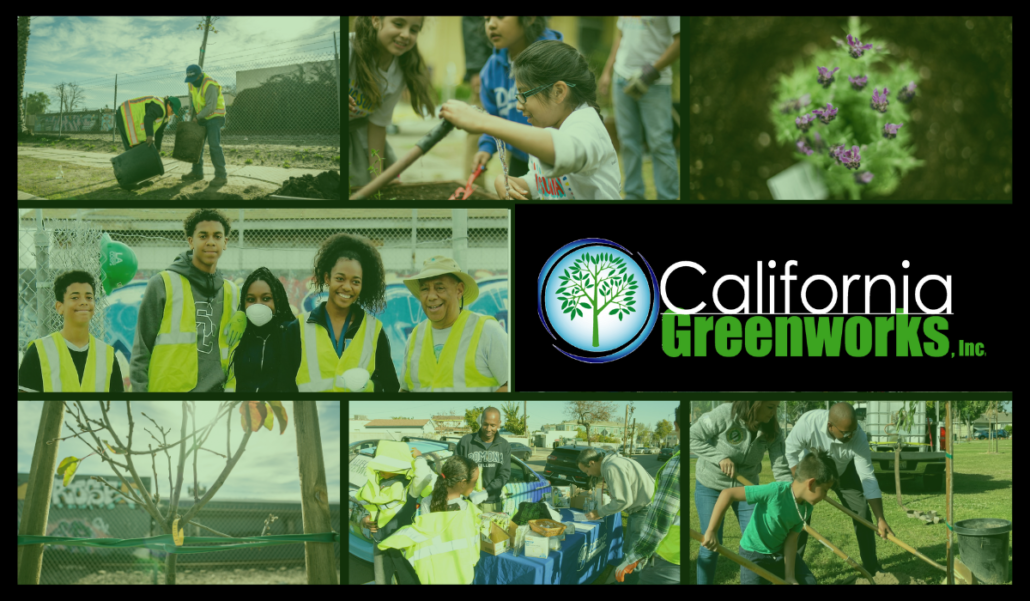
It is no simple mission we set out on 20 years ago, when California Greenworks moved from idea to reality. Yet, it is the simple things over time that have left an impression.
As a founder, I, alongside my good friend Nancy, was baffled at the urban blight that plagued the inner city. Yet, motivated by an inner passion for green spaces and equal rights for disadvantaged communities – we testified against the litter in our oceans and streets, the environmental inequities that faced the world, a community filled with systems of injustice … we started California Greenworks.
We took on our mission as protecting the planet from these systems of injustice: not solely for the sake of the planet, but, importantly, for the sake of our fellow citizens.
This first step was two decades ago.
One of the most important lessons we have learned is scalability. We do not – and in fact, cannot – solve every issue wholly and miraculously. One tree can make a difference. One community clean up can create positive outcomes. One student’s life impacted can make a difference.
For example, I remember a student participating in our youth education program, and he told me this program gave him his first opportunity to see the ocean. It really struck me how simple things like a visit to the beach may not be simple to others. This scenario is one among the long list of burdens of climate injustice.
While every one act makes a difference, the fact of scalability is one we must address our current climate with now. The world is on a path towards calamity. Since an ecosystem is, by definition, about connections and systems, an often overlooked connection within environmentalism is the social justice aspect.
Today, in America, there are systems in place that pave the way towards calamity. Institutions designed to protect us, instead commit murder. When the simple utterance of Black Lives Matter creates anger and fear, this is a symptom of the calamitous path.
Throughout the history of the United States, people of color have been targeted and attacked for being people of color. This system has plagued these populations in marginalized communities, disproportionately impacted by issues of climate change – among other challenges. Since these atrocities are systemic, the solutions must also be systemic.
We cannot solve everything at once, but we can create means of redemption. If you are concerned with the foreboding environment, we remind you that the environment can only be saved when our systems of injustice are footnotes in history. As a scalable remedy, we invite everyone to say the names of the most recent victims of this system: Alonzo Bagley, Tyre Nichols, Keenan Anderson, Eric Holmes, Ki’Azia Miller, Eric Allen … the list is tremendous. Through remembrance we can be motivated towards action. Through one single action, we can be motivated to take the next step and create more action.
Now we must march forward together, tackling issues of climate inequity, climate change and planet earth sustainability. We have to take a more proactive position, and get in control of our environment and that means finding ways to reduce fossil fuels and be more responsive to the needs of our climate.
There are great places in our city that we can enjoy. For example, Kenneth Hahn Park is among my favorite places to visit – it’s close to me, and it’s improved quite considerably over the years. This is proof that, working together, we can create positive change and restore our environment.
I look forward to meeting more community members and working alongside you to create this change, for the next 20 years and beyond.
Celebrating 20 Years in Service
Our team at California Greenworks is excited to celebrate its 20th anniversary in 2023. We’d love you to join us this year in our mission to create a more equitable and green community. Check out our upcoming CELA Awards ceremony, where you can meet environment leaders honored for their impact, and be inspired to take environmental action.
LEARN MORE AND BUY TICKETS HERE


